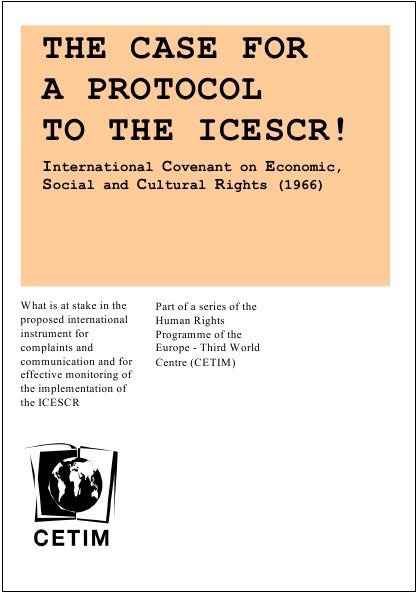Product Description
In paragraph 3 of the common preamble to the two International Conventions of Human Rights –the International Covenant on Civil and Political Rights and the International Covenant on Economic, Social and Cultural Rights– the states parties acknowledge, in accordance with the Universal Declaration of Human Rights, that: “the ideal of free human beings enjoying freedom from fear and want can only be achieved if conditions are created whereby everyone may enjoy his economic, social and cultural rights, as well as his civil and political rights”.
In order to know how this requirement is put into practice, it is necessary to have a monitoring and enforcement mechanism. For the past thirty years, the International Covenant on Political and Civil Rights has had a complaint procedure that has allowed for the development of ample case law on the subject. This procedure was established by what is called a “protocol”.
However, there is still no such procedure for the International Covenant on Economic, Social and Cultural Rights (ICESCR).
Within the United Nations, the debate regarding the necessity of such a procedure has been going on for over fifteen years. An optional protocol to the Covenant has been drafted by the Committee on Economic, Social and Cultural Rights and has been submitted for consideration to the Commission on Human Rights.
The CETIM has long been militating for the creation of such a mechanism. This brochure discusses its utility and provides information on the progress of negotiations on this question within the various United Nations bodies.
Thus, after a brief definition of several terms (I), and a presentation of the what is at stake (II), the brochure will present the current situation of the draft within the Commission on Human Rights (III) –where there has been a general refusal to open discussion on the draft– before moving on to a commentary on the draft by the CETIM (IV).



